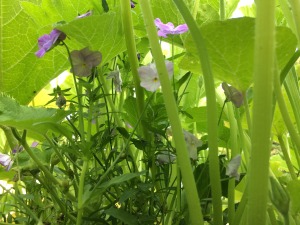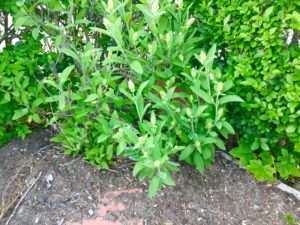Holy, holy, holy Lord, God of power and might,
Heaven and earth are full of your glory.
Hosanna in the highest.
Blessed is the one (he) who comes in the name of the Lord.
Hosanna in the highest.
If it wasn’t followed by heaven and earth are full of your glory, I might think the power and might of God was more destructive than constructive. Lots of time, power and might refer to military strength or physical abilities that can overcome adversaries. But the rest of the sentence makes me rethink this reading. Heaven and earth are full of your glory reminds me of God’s creative act – the heavens and the earth were created when God spoke them into life. Looking into space or looking out the window, heaven and earth are so complex, so alive, that I’m filled with wonder for this creation and praise for its creator. Hosanna in the highest is just another way to say WOW.
This song doesn’t give the name of the one who comes in the name of the Lord. It could be Jesus, certainly, but it might mean another. I think anyone and everyone who comes to this broken, beautiful world and sees in it the hand of God is indeed blessed – to wake every day in a sacred creation, surrounded and embraced by God’s living world is to live a blessed life. To see in anyone and everyone a child of God, perhaps even when gazing into a mirror, is to live in joy. For this, Hosanna in the highest is just another way to say WOW.
(Wondering Where the Lions Are, Jimmy Buffet, originally by Bruce Cockburn)


